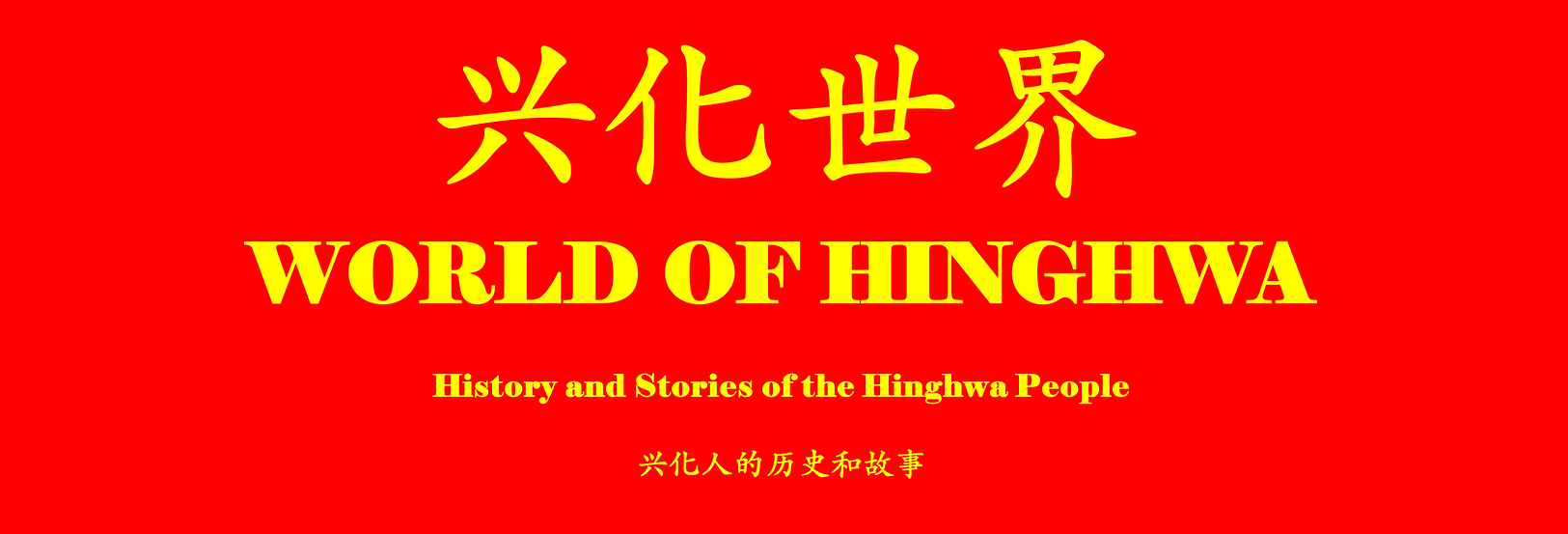
Kuching, Sarawak
Sarawak is the largest state in Malaysia and is home to one of the most notable Hinghua communities, possibly the largest on Borneo Island. This community is primarily concentrated in the cities of Kuching, Sibu, Miri, and Bintulu.
In Kuching, there were two Temenggongs, one of whom has a street named after him. In Sibu, two notable Hinghua also have streets dedicated to them.
The contributions of the Hinghua community, along with their Chinese counterparts, have been instrumental in the development of Kuching. This was acknowledged on several occasions by the second Rajah, Charles Brooke, who publicly stated in 1883, “Without the Chinamen we can do nothing.”

Source: Jason Ong
The fishing boat located in the center of a roundabout in Bintawa, Kuching, Sarawak, symbolizes the livelihood of the Hinghua people and their settlements.
There are primarily two groups of Hinghua from different areas of Putian who settled in Kuching, Sarawak. Most of these individuals arrived at the beginning of the 20th century, although some may have arrived earlier.
The first group settled along the Sarawak River, where today we find Chinatown and Brooke's Dockyard. Later, some members of this community relocated further down the river to the Blacksmith Street and Petanak areas, forming a second Hinghua enclave.
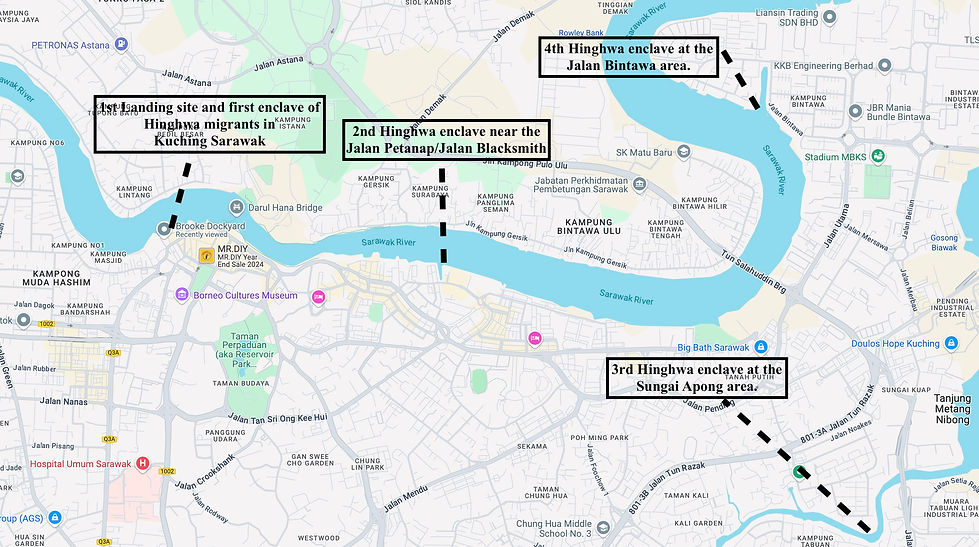
Hinghua enclaves in Kuching, Sarawak
Source: Google Maps
Before long, another group moved to establish a third enclave in the Sungei Apong area, where a large sign reading "Kampung Sungai Apong Baru, Taman Heng Hua" was displayed. To maintain peace and harmony among the different groups, they were encouraged to form an organization called the "Kuching Henghua Co-operative Better-Living and Village Society Limited."
This frugal co-operative later expanded to include other associations, such as the Kuching Fishing Boat Association (古晋鱼船公会), the New Fishing Village Co-operative (新渔村合作社), and the New Fishing Village Chinese Primary School (Lim, K. S. pp. 35-37).

Source and Arrangements: Jason Ong
Kuching New Fishing Village Officials
---
新鱼村合作社 - 刘顺荣秘书
Xinyu Village Cooperative - Secretary Liu Shunrong
新鱼村合作社 - 刘文侯顧问
Xinyu Village Cooperative - Consultant Liu Wenhou
郑瑞福顧问
Consultant Zheng Ruifu
古晋鱼船公会 - 甲必丹陳国璋
Kuching Fishing Boat Association - Kapitan Chen Guozhang
---
For further reading and reference, please view the Publications section, which includes selected literature on the group and their village.
Note: This is a third-party video.
Please view it at your discretion.
Another group eventually relocated to a different part of the river in the Bintawa area, where a fourth Hinghua enclave was established. Over time, these various groups united to form the Kuching Hing Ann Association, which has maintained peace and harmony to this day.
Although most of the migrants were fishermen, many later ventured into the automobile trade, where they came to dominate approximately 95% of the transportation sector (Tien, 1983). Some became car distributors, while others entered property development. Additionally, some individuals emerged as public officials and community leaders, such as Temenggong Datuk Tan Meng Chong (天猛公拿督陈明聪) and Temenggong Lu Kim Yong (天猛公劉金榮).
The Temenggong holds significant power, with responsibilities believed to include ensuring the safety and security of the state, as well as protecting the rulers. In the early 19th century, during the signing of treaties between the Johor government and the British, it was the Temenggong who signed these agreements on behalf of the Johor government.
Temenggong Datuk Tan Meng Chong
(1928 - 2003)
(天猛公拿督陈明聪)

Temenggong Tan, Source: Family
Chung Hua School, Source: Jason Ong
Street Sign, Source: JP Hong Boon Siong
Temenggong Datuk Tan was born in Kuching, Sarawak, and his ancestry traces back to Putian, Jiangkou, Gangxia Cun, in China (莆田江口港下村人).
In Sarawak, he made significant contributions as an educator, writer, businessman, and politician. He attained the title of 'Temenggong,' which is equivalent to that of a Chief Minister or Prime Minister, and holds considerable power within the Malay Kingdom.
Temenggong Tan served as a member of the Sarawak State Legislative Assembly for the Pandungan constituency from 1979 to 1983. He was dedicated to building many schools over a span of 40 years.
In recognition of his contributions, he received the 180th Anniversary Commemorative Medal of Malaysian Chinese Education in April 2000. Among other accolades, he was also honored with the 178th Guinness Award (健力士奋发奖).
His life and contributions to the nation and its people are documented in his biography titled 我的风雨路: 天猛公拿督陈明聪.
In his honor, several streets, including "Jalan Datuk Temenggong Tan Meng Chong," have been named after him.
(天猛公劉金榮)
The late Temenggong Lu stepped down as Temenggong in August 2016 and passed on at the age of 71.
Kueh Hock Kui (郭福贵; 1933-2008)
Hock Kui Development Sdn. Bhd.
Sarawak, Malaysia

Source: Kok Yong Hwa
Kueh Hock Kui (郭福贵) is a classic tale of a poor boy who found fortune through his inherent ingenuity.
He was born in Kuching on 31 May 1933 and married Chai Shuk Lan (蔡淑兰). Together, they had five daughters and one son, lawyer Guo Rong Hwa (Kok Yong Hwa; 郭熔华律师). Additionally, he was the uncle of JP Hong Boon Siong.
Hock Kui's father, Guo Wen De (郭文德), was married to Chen Fang Gu (陈方姑). Both of his parents were from Putian, Hanjiang, Jiangkou, Ganghou Village (莆田市,涵江区,江口,港后村).
During the late 19th to early 20th centuries, a plague swept through Putian. His grandfather, Guo Mei Ge (妹哥), brought his three sons out of the country to Sarawak. These sons were Guo Wen De, who was 9 years old (文德), Guo Mao Fang, who was 6 years old (懋芳), and Guo Mao De, who was 3 years old (懋德). Kueh Hock Kui was the eldest son of Guo Wen De.
Hock Kui's quest for success was sparked by a comment from one of his teachers during a confrontation with a bully. The teacher chastised him, saying, "He is rich, made of gold; you are made of mud." This negative remark ignited his determination to succeed. He persevered, and although he loved reading, his formal education ended in 1941 during the Japanese occupation of Sarawak.
After Japan surrendered in 1945, he noticed that the British army camp often had leftover pastries. At just 12 years old, he approached an officer and asked if he could take the leftover food. The officer in charge granted him permission. This bounty became a big hit with the local public, who had never experienced such treats before. Seeing the opportunity to earn money, and with seven school-age siblings at home, Hock Kui stopped schooling to help his father at a vermicelli factory.
In the early 1950s, as his father bought and operated a taxi, Hock Kui purchased a bus. A year later, he won contracts to transport office workers. In 1954, he joined Chin Lian Long Motor Vehicle Co., Ltd., where he became involved in union activities. Within four years, he was elected Chairman, acquiring valuable management skills.
Later, he supplied spare parts, machinery, water pumps, and chemicals through another venture called Sin Ngiap Co. His frugality, prudence, and foresight enabled him to expand his businesses successfully.
By the 1960s, he was a fully established businessman. On his father's deathbed, he promised to take care of his five younger siblings and eventually distributed most of the company's shares to them, ensuring they would not be labeled as 'mud kids.' By 1973, the company had branches in Kuching, Kota Kinabalu, Brunei, and Singapore.
Five years later, Hock Kui ventured into his own business. In the late 1970s, he founded Hock Kui Development Sdn. Bhd. to develop properties and Kueh Enterprises Sdn. Bhd. to manage rental properties. His companies accumulated a substantial portfolio of commercial real estate in Sarawak.
Hock Kui was also a union activist, dedicated to serving the community and funding numerous social organizations.
In 2006, he was honored with the Sarawak State Entrepreneur of the Year Award. In a newspaper interview, he credited his success to the teacher who once called him a 'mud kid.'
In late 2008, he was survived by his widow, six children, and several grandchildren.
Angie Kueh Li Ping (郭娌宾)
Managing Director, Hock Kui Development Sdn. Bhd
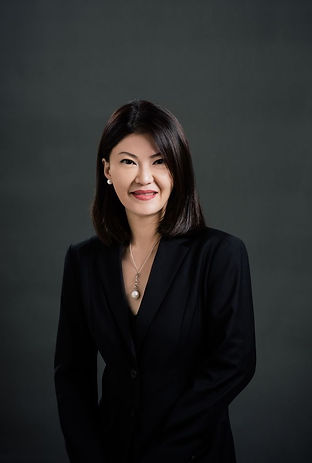
Angie Kueh is a third-generation Hinghwa in Sarawak. In 1995, she graduated from the University of Waikato with a Bachelor of Social Sciences, majoring in Political Science with a focus on Public Policy and Public Administration.
She demonstrated her capabilities when she became the Managing Director of Hock Kui Development Sdn. Bhd., a highly trusted brand in the property sector in Kuching, Sarawak.
She later took on the role of Secretary-General of the Sarawak Housing and Real Estate Developers' Association (SHEDA). In 2021, she was awarded the Bentara Bintang Sarawak (B.B.S.), which is the Herald of the Order of the Star of Sarawak, by the Government of Sarawak.
Currently, she serves in public relations, liaisons, and activities for the Sarawak Chamber of Commerce and Industry. She is also the Managing Director of Bloom Richmark Sdn. Bhd. and the Deputy Country Director for the BIMP-EAGA Business Council in Malaysia, which stands for the Brunei Darussalam-Indonesia-Malaysia-Philippines East Asian Growth Area.
JP Hong Boon Siong (方文祥太平局绅)
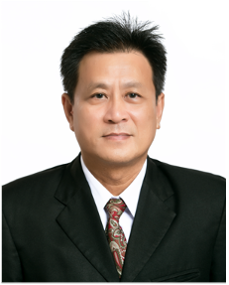
JP Hong is a 5th-generation Hinghua in Kuching, with ancestry from Fujian, Putian, Jiangkou, Gangxia Village (福建省莆田縣,江口鎮港下村).
His father, the late Hong Tian Huat (方天發), was also born in Kuching and was related to the late Pehin Hong Kok Tin, a Hinghua minister in pre-independent Brunei Darussalam.
He was also related to the late Temenggong Datuk Tan Meng Chong, a prominent community leader in Kuching, Sarawak.
A devout Taoist, JP Hong played a key role in designing and funding the construction of the magnificent Tong Kak Kuan (东岳观) in Kuching. The temple features a graphic historical narrative of ancient China, illustrating values such as heroism, loyalty, and filial piety, among others.
His business ventures encompass the automotive dealership, property management, real estate development, and investment sectors. Notably, he owns Borneo Happy Farm, a 130-acre agri-ecotourism destination that includes a graphic section on the early history of Borneo and the Chinese migrants in Nanyang. The farm cum museum has become a popular attraction for both locals and tourists.
He previously served as Chairperson of the Hong Boon Siong & Teo May Tze Charity Foundation, which supported public welfare, particularly in education. His charitable approach reflects his belief in giving back to society.
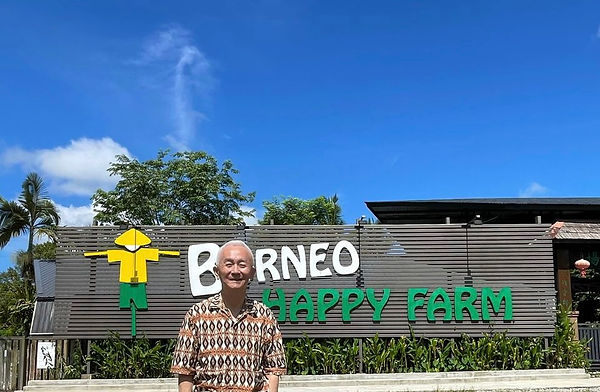
Source: JP Hong Boon Siong
Dr. Hong Sheng Chiong
Opthalmologist
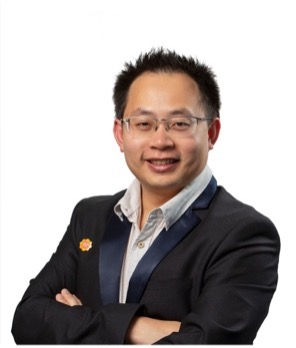
Dr. Hong is a sixth-generation Hinghua in Kuching, Sarawak. He is a medical doctor, neurosurgeon, ophthalmologist, cornea specialist, inventor, entrepreneur, and philanthropist. His father is JP Hong Boon Siong.
Dr. Hong trained in Ireland, where he earned his medical degree (MB BCh BAO). He completed his postgraduate training in ophthalmology at the University of Otago and underwent clinical training in Ireland before moving to New Zealand, where he served as a registrar in neurosurgery and general surgery.
Later, he returned to ophthalmology, focusing on eye regenerative medicine, bioengineering, and telemedicine. His experiences in third-world countries alarmed him, as he witnessed many patients suffering from preventable blindness due to a lack of proper eye care.
In 2014, he founded OphthalmicDocs (oDocs), where his research and development company successfully invented an adaptor that can be mounted on a mobile phone camera to test and diagnose eye problems. His life mission is to combat preventable blindness.
Dr. Hong's wife, Joyce Lim, is a radiologist, and they have a son named Hayden Hong.
Lin Yuzhong (林宇中)
Music Composer and Actor

Source: Federation Heng Ann,
Malaysia
Lin Yuzhong (林宇中) was born on December 29, 1978, in Sarawak, Malaysia, and he has ancestral roots in Putian, Fujian Province, China.
After completing his basic education in Sarawak, he attended the University of Malaya, where he graduated with a degree in Microbiology.
A music enthusiast from a young age, Lin participated in songwriting competitions and won the Best Composer Award at the National Junior College Chinese Song Creation Competition. This achievement helped launch his career in the entertainment industry, where he collaborated with some of the most renowned Chinese artists, including Jordan Chan (陈小春), Lin Junjie (林俊杰), Zhang Jie (张杰), Li Bingbing (李冰冰), Pin Guan (品冠), Guo Jing (郭靖), and many others.
Lin went on to receive numerous prestigious awards in Hong Kong and Malaysia, where he produced chart-topping albums for various artists. His talent was further recognized when he won the Best Chinese Album Award and the Top Ten Golden Melody Awards. Perhaps his crowning achievement was receiving China's Most Popular Chinese Song Award. This success motivated him to pursue acting, and he earned the Golden TV Awards and the Best TV Drama Award for his performances.
As a celebrated artist throughout China and the surrounding region, Lin became an ambassador for many organizations across Malaysia and China, including Taiwan.
In 2018, he was honored with the Cultural Achievement Award in Malaysia.
---
Excerpts from pp. 294–299 of "Federation Hing Ann Notable People" (Written by Yang Qianni).
Dong Yue Guan Temple, Kuching
(东岳观庙古晋)

Dong Yue Guan Temple, Kuching (东岳观庙, 古晋)
Source: Jason Ong & JP Hong Boon Siong
A Glimpse of Kuching, Sarawak
Note: These are third-party videos.
Please view them at your discretion.
Visit Sarawak 2003
Kuching 1864
Kuching 1890
Kuching 1928
Kuching 1945 (Japanese Surrender)
Kuching 1945 (tiada cina tiada kedai)
Kuching 1950 (Native Nurses)
Kuching 1956
Kuching 1959
Kuching 1966
Kuching 1972 (Mini Skirt era)
Kuching 1975 (Airport)
Kuching 1976
Kuching 1994 (Chinatown, also First Hinghwa enclave)
Kuching 2004 (Heng Hua Fishing Boat)
Kuching 2023 (Perarakan Niti Daun, Sarawak Native)
Sarawak

The impressive copper tooling of the Hinghua migrants arriving in Sibu, Sarawak was taken from the Hin Hua Centennial Park in Sibu.
Source: Jason Ong and Kapitan Frankie Nee
Sibu, Sarawak
Sungei Merah (Red River) is considered the first landing point for migrants arriving in Sibu, Sarawak.
Sibu is a town in Sarawak where many Chinese, including the Hinghua, were brought by Methodist missionaries. Before the arrival of the Hinghua, the missionaries, Rev. Brewster and Rev. Teng Bing Tiong, secured land from the Brookes in 1912 to build homes in Sungai Merah and Sungai Teku. After the land was secured, the missionaries accompanied two groups of Hinghua to the area. Once settled, they began cultivating the land, which later became known as Hinghua Land (兴化芭). Consequently, it is no surprise that the Hinghua community in Sibu is predominantly Christian, and many still speak Hinghua.
Those who arrived separately were also given land or a portion of the jungle to establish their own homes. However, the native mosquitoes, snakes, and wild animals made life exceedingly uncomfortable. As Lucy Siew recounted, “My grandparents came from Putian in the 1930s. They arrived with nothing more than the clothes on their backs. Uncertain of what lay ahead, they courageously sailed the high seas to escape the chaos of civil war, hoping for a better future.”
Upon arrival, they had to clear the virgin jungle to build their shelters, often sleeping on twigs and leaves. Those fortunate enough had gunnysacks to use as blankets. The only available food consisted of roots, leaves, or whatever they could forage. Adapting to a new environment brought many challenges, and the lack of necessities made young children vulnerable to illnesses, leading to tragic deaths. Some even had worms crawling out of their orifices after passing away. Despite these hardships, they eventually cleared the jungle to plant vegetables, potatoes, taro, gum, and cereals. They worked for six days and rested on the seventh to worship God in church. Over time, the jungle transformed into a town known as ‘Shiwu Hinghuaba’ or Sibu Hinghua Village in Sungai Teku.
Lucy’s father longed to return to China. As the Chinese idiom says: "The leaves of a tree must return to their roots" (落叶归根). Even on his deathbed, he inquired about news from China, but his wish was never fulfilled, and he died feeling broken. Lucy’s mother faced the challenge of raising the children alone.
During these difficult times, some women suffered physical violence from their husbands, who released their frustrations on them. To survive, the women banded together with others from nearby regions, such as Miri. Their gathering resembled a 'Bang' structure in function, though on a smaller scale and less frequently.
Not long after China became a Republic, advertisements began appearing in Putian to recruit the poor for overseas work. By this time, the demand for laborers in the tin mines and rubber plantations in Malaysia was increasing rapidly, leading thousands to leave Putian.
Wherever they went, they transformed jungles into towns.
As Liu Qingjia, former president of the Hin Hua Pou Sen Association (Sibu), noted:
“从传统走向现代,由苦难走向光明,虽然是一条充满悲歌和崎岖的道路,但是,勤劳,刻苦和节位的生活美德和勇于冒险的开拓精神,却造就了兴化人无数的荣耀和功名.” (Wong, 2012c, p. 1).
The journey to modernity (for the Hinghua people) may be filled with many hardships, tragedies. It has also created “countless glory and fame” through the hard work, life virtues and the pioneering spirit of our elders.
Indeed, many have achieved remarkable success; some have become the wealthiest individuals in the region, while others have been honored with prestigious Malay titles, ranging from Dato’ to Temenggong. Some have become Ministers, members of Parliament, and penghulu (village heads).
Sibu is home to many notable Hinghua individuals. While it is impossible to mention them all, I feel compelled to highlight a few, fully aware that there are many others equally noteworthy, if not more so.
Some of the better-known Hinghua in Sibu are: Teng Chin Hua (陈仁华), Rev. Teng Beng Tiong, and Rev. Ling Kai Cheng. Penghulu Yong Che Chong (杨志聪), and Lu Muong Huat (卢文發).
Hin Hua Pou Sen Association, Sibu
(诗巫兴化莆仙公会)
formerly known as Sibu Hin Hua Association
(诗巫兴化公会创会人)
Chairman, Penghulu Yong Che Chong (杨志聪).

Heading 6
Hin Hua Pou Sen Association, Sibu (诗巫兴化莆仙公会).
Source: Jason Ong & Kapitan Frankie Nee
On 5 April 1937, Rev. Ling Kai Cheng gathered the Hinghua people at the Tiong Hin School, where he mooted the idea of setting up a Hin Hua Association (诗巫兴化公会) to foster mutual relationships (Ling, 2018, p. 56). Rev. Ling became its chairman for 3 years.
In 1958, it was renamed to Hin Hua Pou Sen Association, Sibu (诗巫兴化莆仙公会). The association is very active in promoting the Hin Hua culture and maintaining the cohesion of the Hinghua people. To their credit, apart from constructing an impressive building for the association, they have developed a Hin Hua town with a church, schools, a centennial memorial park, and even a cemetery. Their committee members are still very fluent in the language, and they were cast in a video depicting the struggles of their Hinghua pioneers.
I'm deeply grateful to their president and committee members for hosting my visit in 2023. I'm especially grateful to their secretary, Frankie Nee who took much time off to show me around the rich Hin Hua heritage in Sibu.
The current Chairman is Penghulu Yong Che Chong (杨志聪).
The association is a member of the Federation of Heng Ann Association Malaysia.
The Pioneers
(Sibu)
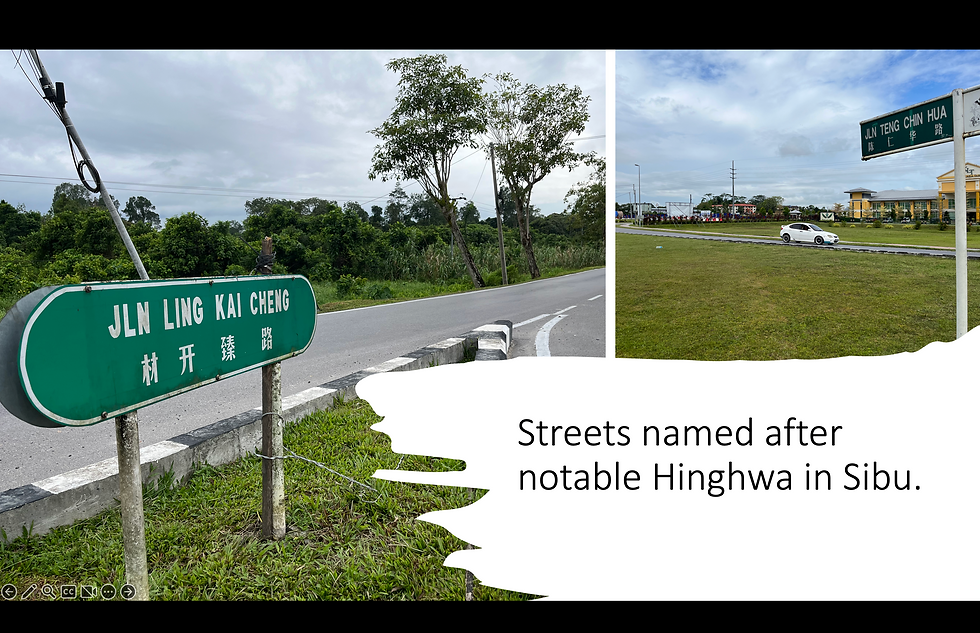
Source: Jason Ong & Kapitan Frankie Nee
Rev. Ling Kai Cheng
(林开臻, 1897-1987)

Founder of the Sibu Hin Hua Association (诗巫兴化公会创会人), now known as the Hin Hua Pou Sen Association, Sibu (诗巫兴化莆仙公会)**
Rev. Ling was born on July 8, 1897, in Xianyou County, Fujian, China. At the age of 14, he was moved by a sermon and vowed to serve in a church. In 1913, he joined his parents, who were part of the second group of migrants to Sibu organized by Methodist missionaries.
Two years later, they relocated to Kuching to start a grocery business. In 1917, he married Lee Bui Moi (李尾妹) and returned to Sibu, where they were blessed with four sons and two daughters.
In 1923, he founded the Hua Ying Printing Company (华英印务公司) with a few friends. The name '华英' indicates it was a Chinese company operating within the British Empire.
In 1925, he moved to Singapore, where he and his friends established the Rong Guang Printing Company (榕光公司). There, he became active in the Methodist Church and occasionally served as a speaker. In 1930, he returned to Sibu, where he led efforts to assist those affected by a devastating fire. He worked on building roads, planting fruit trees, and constructing schools, churches, clinics, and hospitals by raising funds both locally and overseas. He was instrumental in constructing the Iban Methodist Church, the Methodist Children’s Home, the Methodist Theological College, the Methodist Book Room, and the rebuilding of the Tien Tao Methodist Church, Tien Sik Methodist Church, and the Methodist Secondary School in 1947. Additionally, he purchased valuable land for the Methodist Church that now houses the Pilley Memorial Institute (MPI) in Sibu.
In 1951, he played a key role in establishing the Sibu Hin Hua Association, with its association building completed in 1958. This association was later renamed the Hin Hua Pou Sen Association, Sibu (诗巫兴化莆仙公会), where he served as chairman for three years.
His Christian faith deepened when he was ordained as a pastor of the Tien Sik Methodist Church (天锡堂) in 1952, followed by ordinations in several more churches.
Rev. Ling passed away in 1987 and was buried in the Hin Hua Methodist Cemetery in Sungai Merah, a piece of land he helped transform. He left behind a rich Hinghwa legacy, commemorated by a road named after him: Ling Kai Cheng Road (林开臻路) in Sibu, Sarawak, Malaysia.
(Excerpts from Wong Meng Lei) Publisher: 马来西亚基督教卫理公会砂拉越华人年议会文字事业部
Datuk Teng Chin Hua (PGBK), ABS, PBS
(拿督陈仁华; 1932-2008)

& Kapitan Frankie Nee
Heading 6
Datuk Teng was born in Sibu, Sarawak, on March 15, 1932.
He married Datin Kee Mee Chieu (纪美洲) in 1949. Together, they were blessed with five sons and one daughter, all of whom received a quality education and became professionals in various fields, including medicine and finance.
The family is devoted to the Methodist faith. In 1983, he was awarded the title of P.G.B.K. Datuk by the Head of State of Sarawak, making him the first Hinghwa individual in Sibu to receive such recognition.
Datuk Teng joined Sarawak United Sawmill Sdn. Bhd.. in 1952, managing on just six hours of sleep a day. Through hard work and honesty, he rose to the position of general manager. In 1962, he also assisted in running Lien Ho Sawmill Sdn. Bhd.. until 1979.
After nearly 27 years of employment, he decided to establish his own company, Tropical Timber Trading Sdn. Bhd.., where he served as chairman for the remainder of his life.
In addition to his business endeavors, Datuk Teng was actively involved in social work, taking on many leadership roles. He served as the president of the Sibu Hin Hua Pou Sen Association (HHPSA) from 1982 to 1985 and continued as permanent chairman and advisor to the association. He was also president of the Federation of Heng Ann Associations Malaysia (FHAAM) from 1992 to 1995 and president of the United Chinese Association (UCA) in Sibu from 1993 to 1995. Furthermore, he was the chairman of Kiang Hing Middle School (建兴中学) from 1982 to 1992 and Tiong Hin Secondary School (中兴中学) from 1996 to 2008.
Datuk Teng made significant contributions to the infrastructure of both Kiang Hing Middle School and Tiong Hin Secondary School during his tenure as School Board Chairman. A building block at Tiong Hin Secondary School was named in his honor to commemorate his contributions. He also played a vital role in establishing Tiong Hin Primary School (中兴小学) and Tiong Hin Kindergarten (中兴幼儿园).
Whenever the schools faced funding shortages, he stepped in to help. He showed great generosity by inviting staff and teachers from the eight schools founded by the Hinghwa forefathers in Sibu town for an annual gathering aimed at fostering friendship and cooperation, as well as expressing gratitude for their service.
Overall, Datuk Teng was very generous in donating to educational, cultural, social, and national causes. He actively participated in HHPSA’s activities and led the construction of several major projects, including the two Hinghwa Memorial Gardens built in 1982 and 1992, respectively.
He graciously assisted the Hinghwa clan in the neighboring town of Bintulu by helping them acquire a shophouse to serve as their association building.
He played a crucial role in forming the Federation Heng Ann Association Malaysia in Malacca before relocating to Kuala Lumpur. This initiative eventually united all 34 Hinghwa organizations in Malaysia under one umbrella.
In addition to his service to the Hinghwa clan, Datuk Teng contributed to numerous other non-profit organizations (NGOs) in Sibu. He also built the Table Tennis Building in 2003 and Su Lai Primary School in 1988 in Sibu town.
His exemplary service to both the nation and the community was recognized by the state, which conferred upon him the honorable title of “Datuk.”
During the Centennial Celebration of the Hinghwa Clan Settlement in Sibu in 2012, a road was named Teng Chin Hua Road in his honor—an accolade befitting a great Hinghwa man.
Datuk Lau King Kah, Philip, PGDK.
(刘庆嘉拿督)
Honorary President/Advisor Sibu Hin Hua Pou Sen Association

Source: Kapitan Frankie Nee
Philip Lau King Kah (刘庆嘉) was born in Sibu in 1953. His roots trace back to Shiting (石庭) Xiliu Village (西刘村) in Hanjiang District (涵江县), Putian City (莆田市), Fujian Province (福建省). He served as the 52nd (2010–2011) and 53rd (2012–2013) president of the Sibu Hin Hua Pao Sen Association.
To inject new vitality into the association, he launched a membership drive campaign to recruit young Hin Hua members. During his tenure, the number of new members increased significantly, and he also computerized member data and issued membership cards. At the same time, Philip initiated the publication of the association's quarterly magazine to record all activities. He established the Xing'an Cultural Troupe (兴安文娱团) in May 2010, which welcomed students from seven Hin Hua schools. The Troupe successfully held several grand performances in Sibu, earning applause from the audience and the general public.
Due to his enthusiasm, Philip reorganized and upgraded the association’s cemetery, naming each plot of land for easy identification. Additionally, he successfully obtained more than 2 acres of land in front of the existing cemetery from the Sarawak government.
In 2011, he led 58 members, including senior advisors, to Putian (莆田) and Xinyu (仙游) in China to foster relationships with their ancestral roots and facilitate the establishment of a friendly city agreement between Sibu and Putian. In 2012, the association celebrated the 100th anniversary of the Hin Hua migration to Sibu. Philip was appointed as the organizing chairman for this grand event, and he initiated the erection of a Hin Hua Migration Centennial Monument at the Hin Hua Memorial Park in the Auyong (后洋花园) residential area. The monument, beautifully carved, symbolizes the spirit of the pioneers who came from Putian and Xinyu, and it is now a popular spot in the park.
In conjunction with this grand celebration, he also initiated the refurbishment of the entire association building. A book titled "The History of the Migration of Hin Hua People in Sibu" was published to commemorate the Hin Hua ancestors.
Philip believes that the meaning of life lies not in extravagant hopes and greed but in dedication and brilliance. Therefore, in addition to pursuing his personal career, he actively participates in social services. He served as a Sibu municipal councillor from 1993 to 1998 and was the chairman of Tiong Hin Kindergarten from 2000 to 2010. He has also served as an advisor at Kian Hin (建兴) Secondary School and as a director of Hua Hin (华兴) Kindergarten, Primary School, and St. Mary's Catholic Primary School. During his tenure as chairman of Tiong Hin Kindergarten, he initiated the construction of a new kindergarten building in 2001 to accommodate the growing student population. A modern three-story building was completed in 2002, featuring six classrooms, assembly halls, and other facilities. The project cost approximately RM700,000, and Philip contributed RM150,000 to kickstart the fundraising, quickly garnering a positive response to make the dream a reality!
Currently, Philip Lau is the chairman of Tiong Hin Secondary School and the second vice chairman of Tiong Hin Primary School. On September 13, 2003, he was awarded the ABS Meritorious Title by the Sarawak Government.
Philip Lau started his own business in 1977. Sunlun Corporation Sdn Bhd is the main distributor of tires for major brands, including Michelin, Goodyear, Bridgestone, Continental, Hankook, Dunlop, and other brands from China and Thailand. In addition to tires, he also serves as a car dealer for Mazda, Ford, and Hyundai in Sabah and Sarawak.
In terms of family, Philip Lau and his partner, Ong Bee Eng, have two sons and one daughter. His wife serves as a director of the company. Their eldest son, Fabian Lau Wenqi, is 41 years old, graduated from Monash University in Australia, and is currently a director and the Head of the Tire Distribution Department. The second son, Edmund Lau Wen Wei, is 39 years old and graduated from RMIT University in Australia. He is a company director and the Head of Motor and Human Resources. Their youngest daughter, Geraldine Lau, is 36 years old and graduated with a master's degree from New York University. She currently works in Toronto.
Penghulu Yong Che Chong
(B.B.S., P.P.T., A.B.K.) (杨志聪)
Chairman, Sibu Hin Hua Pou Sen Association
Chairman, Federation of 7-Clan Associations, Sibu
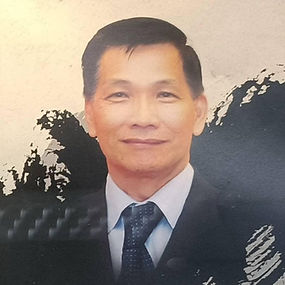
Source: Kapitan Frankie Nee
Penghulu Yong Che Chong is a third-generation Hinghua in Sibu. He was born in 1957. His father, Yong Jeck Seng, hailed from Sungai Teku, Sibu, with ancestral roots in Xianyou, China. His mother, Chiew Say Chia, was also from the same county. Penghulu Yong is married to Wong Sheau Xia, and together they have a son, Samuel Yong Zhong Sheng.
Penghulu Yong was appointed as a Penghulu in 2022. He is a devoted civil servant who has served in various government departments, including the Department of Agriculture, Land and Survey Department, the Public Works Department (JKR), and the Rural Water Supply Department. His deep passion for preserving and promoting Hinghua culture led him to dedicate significant time and expertise to the Hin Hua Pou Sen Association, where he currently serves as Chairman. His current term spans from 2024 to 2026.
In addition to his role at the Association, he also holds several other positions:
-
President, Federation of 7-Clan Associations, Sibu (2024–2026)
-
Secretary, Tiong Hin Secondary School Board of Management
-
Deputy Secretary, SJK(C) Tiong Hin
-
Secretary, Tadika Methodist Tien Sik
-
Lay Leader, Tien Sik Methodist Church
During his time as Secretary of the Hin Hua Pou Sen Association (HHPSA), he also served as the Association’s publication advisor. In this role, he accompanied writer Wong Meng Lei to Putian, China, to conduct research on Hinghua history. Their findings were published in a Chinese-language book titled Sibu Hin Hua: A Hundred Years' History and Reflections, released in November 2012. The publication traces the history of Putian and its connection to the Hin Hua (HH) community in Sibu.
For his outstanding contributions to society, Penghulu Yong was awarded the Pingat Perkhidmatan Terpuji (P.P.T.) by the Governor of Sarawak in 2003 and the Ahli Bintang Kenyalang (A.B.K.) in 2009.
Low Muong Huat @ Lu Muong Huat
Former President of Hin Hua Pou Sen Association,
Sibu, Sarawak, Malaysia
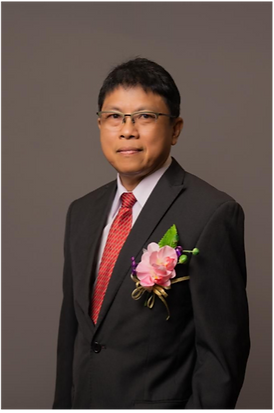
Source: Kapitan Frankie Nee
Muong Huat was born on December 14, 1957, in Sibu, Sarawak. His father, Low Ka Lok, and mother, Nee Hong Eng, both originally from Xianyou, Putian, migrated to Sibu in 1949. They were blessed with six sons and one daughter.
Like many families of their time, Muong Huat's parents worked hard as laborers, rubber tappers, and farmers, cultivating rice and vegetables. Despite facing tough conditions, they persevered and triumphed against the odds.
Muong Huat received his basic education in Sibu and later pursued his ACCA in the UK from Tunku Abdul Rahman College. He is a qualified accountant and served as the general manager of Dunia Forest Group of Companies for over 30 years.
In terms of social service, he was the treasurer of the Hin Hua Pou Sen Association from 2010 to 2018, served as deputy president from 2018 to 2020, and was the president for the term 2020-2024. He is now the Permanent Honorary Chairman cum Advisor to the association. He is also a marriage registrar for the Hinghwa clan.
In his religious community, he is a devoted Methodist and serves at Hwai Ang Methodist Church as a lay leader, chairman of economic planning, and auditor. Additionally, he is the chairman and vice-treasurer of Tiong Hin Primary School and Tiong Hin Secondary School, respectively. His spouse is Ling Kong Jui.
Kapitan Samuel Goh Kee Seng, (BBS)
甲必丹吴义生
Chairman: Huong Seng Motor Company
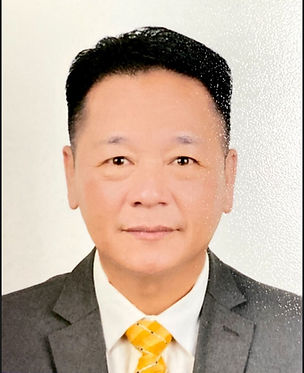
Source: Kapitan Frankie Nee
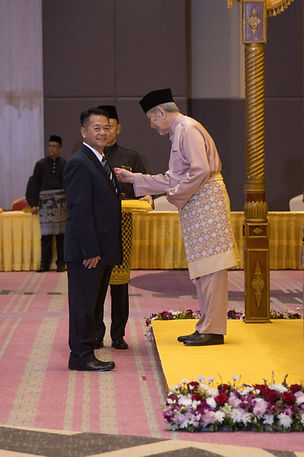
Source: Kapitan Frankie Nee
Congratulations to
Kapitan Samuel Goh Kee Seng
甲必丹吴义生
for being conferred the title of
Bentara Bintang Sarawak (BBS)
Samuel Goh traces his ancestry to Putian, China. He is a third-generation Hinghua residing in Sibu. His father, Goh Kai King, hailed from Sungai Teku, Sibu, while his mother, Lu Kee Hiong, is from Penasu -- both of whom have ancestral roots in Putian, China.
He is married to Kee Ket Hua (紀克花). Together they have a son, Vincent Goh Kiang Hong, and a daughter, Flora Goh En Chin.
Samuel currently serves as the Chairman of Huong Seng Motor Company, a business that offers comprehensive motoring services -- including vehicle sales, after-sales service, maintenance, and repairs.
On January 1, 2024, Samuel Goh was appointed as a Kapitan, a position he will hold until December 31, 2027.
A Kapitan is a respected community leader responsible for overseeing a specific area. Acting as a liaison between the residents and the authorities, the Kapitan plays a crucial role in safeguarding the welfare of the local community. It is a demanding position, as residents may seek assistance at any time, day or night.
The responsibilities of a Kapitan include certifying government documents, mediating family or neighborhood disputes -- often during unconventional hours -- and supervising public projects within their jurisdiction. It is a noble role, deeply rooted in social service and community care.
Despite the significant responsibilities, Kapitans receive only a modest allowance, typically not exceeding RM1,000. However, for many -- including Samuel -- it is not the financial reward that matters, but a genuine passion for helping others. Like many of his Hinghua compatriots, Samuel Goh strongly believes in giving back to society.
Apart from this social role, he also serves as the secretary of Hin Hua Pou Sen Association w.e.f. 2024-2026. He is also a secretary of the Tiong Hin Primary School Board of Management. He is also the secretary of the Sibu Automobile Repairer Association, and Vice Chairman, Deacon Department (执事部副主席) of the Borneo Evangelical Mission (BEM) Hosanna Church.
On 29 October 2024, he was awarded the title of Bentara Bintang Sarawak (BBS) by the authorities.
Kapitan Nee Chung Shyang, Frankie
Bank Manager
Sibu, Sarawak

Frankie Nee was born in Sarawak on December 6, 1963. His father, Nee King Chiong, and mother, Yew Ah Poi, were natives of Putian, Fujian Province, China. They migrated to Sibu, Sarawak, in the early 1930s, where they worked as laborers, rubber tappers, and farmers, planting rice and vegetables. The couple was blessed with four sons and four daughters.
Frankie graduated from Bolton University in the UK with a Bachelor of Arts degree. He is currently the Branch Manager of RHB Bank Berhad at the Sungai Merah Branch in Sibu, Sarawak, Malaysia. He completed his secondary education at Tiong Hing Secondary School, which was founded by Hinghwa pioneers in Sarawak. Frankie has been serving as the Chairman of the Alumni since 2014.
In addition to his role at the bank, he has served as the Secretary of the Sibu Hin Hua Pou Sen Association since 2020. He was also appointed as a Kapitan, a position he will hold from January 1, 2024, to December 31, 2027.
Frankie is married to Ms. Yii Mai Ik, Elizabeth. They have two sons and a daughter. Their eldest son, Raymond Nee Chan Yew, graduated with a degree in Occupational Safety and Health Management and married Connie Wong Huah Nee, who is a Chinese Traditional Medicine Practitioner. Their second son, Eric Nee Chan Hon, is an Electrical Engineer married to Grace Kho, a teacher.
Their daughter, Dr. Irene Nee Chan Yin, is a Medical Doctor with a degree from Perdana University-Royal College of Surgeons in Ireland. She is currently working at Sibu General Hospital and is married to another medical doctor, Dr. Bobby Lee Yung King.
---
A Tribute to Kapitan Frankie Nee
In 2023, as part of my study tour on the Hinghua community in Sarawak, I had the privilege of visiting Sibu. There, I was warmly received by the President and Committee members of the Hin Hua Pousen Association.
Their generous hospitality left a deep impression on me. Not only did I gain invaluable insights during my visit, but I have continued learning since my return—thanks to the many publications they kindly shared with me, including copies of the Hinghua Bible.
The graciousness and thoughtfulness extended to me throughout my stay were truly moving. For that, I remain profoundly grateful.
Nee Chee Piaw @ Ling Chee Piaw
(林志耀)
Chairman Nee Seng Ngeng & Sons Sago Industries Sdn Bhd,
Sibu, Sarawak,
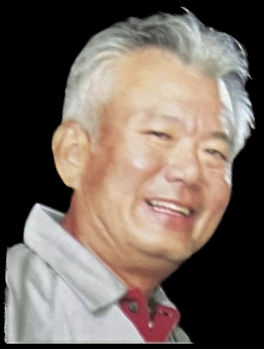
Source: Kapitan Frankie Nee
Chairman Nee Seng Ngeng & Sons Sago Industries Sdn Bhd, Sibu, Sarawak, Malaysia**
Chairman Nee Seng Ngeng was born in Sibu, Sarawak, on September 3, 1959. He is married to Ms. Tang Pick Kiaw. His parents, Nee Seng Ngeng and Teo Ah Leng, originally came from Xianyou, Putian, and migrated to Sibu in the early 20th century. They were blessed with seven sons and four daughters.
In the early 1950s, his father and uncle ventured into the sago starch food industry in the remote area of Dalat, Sarawak. Despite the challenging conditions, they organized themselves to establish a traditional sago flour mill for export.
In 1984, Chee Piaw and his father founded Nee Seng Ngeng & Sons Sago Industries Sdn Bhd, transforming it into a fully modern and automatic sago flour mill with increased production capacity. The company exports to various markets, including Malaya, Singapore, Japan, China, Thailand, and Myanmar.
In addition to his business endeavors, Chairman Nee is actively involved in social services. He serves as a patron and advisor to the Hin Hua Pou Sen Association in Sibu and is the vice-chairman of Tiong Hin Secondary School in Sungai Merah, Sibu.
Nee Choong Sing, Alan
Managing Partner
McMillan Woods Nee Wong
Chartered Accountants
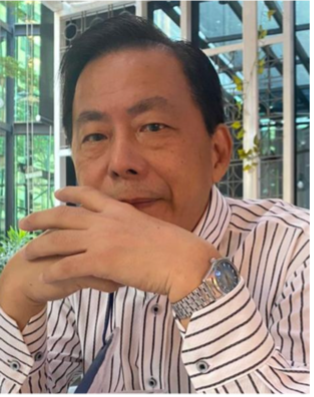
Source: Kapitan Frankie Nee
Alan was born in Sibu in 1957 and is fluent in the Hinghwa language.
His father, Nee King Chiong, and mother, Yew Ah Poi, both hailed from Putian. They migrated to Sibu, Sarawak, in the early 1930s, where they worked as laborers, rubber tappers, and farmers, cultivating rice and vegetables, among other crops. Together, they were blessed with four sons and four daughters.
Alan received his basic education in Sibu before pursuing a degree in the UK, where he graduated with an ACCA qualification.
Upon returning to Sibu, he held several positions, including Assistant Audit Manager at Hock Hua Bank Bhd, Credit Manager at Delta Finance Bhd, Branch Manager of Sarawak Securities Bhd. in Miri, General Manager of Rimbunan Sawit Bhd., and Chief Operations Officer of WTK Holdings Bhd.
Before his career in Sibu, he was recruited as a trainee pilot with the Singapore Air Force in 1975. His training included learning to fly a fighter jet and parachuting. However, his aspirations for this exciting career came to an end when he decided to remain a Malaysian, as only Singapore citizens can serve in the Republic of Singapore Air Force.
Alan is married to Loi Lea Ling, and they have two sons: Nee Chan Gin, William, who graduated with a Master of Law from Reading University in the UK, and Nee Chan Lik, Gordon, who graduated with an ACCA from the London School of Business.
Dr. Irene Nee
Medical Doctor
Sibu, Sarawak

Dr. Irene Nee is the daughter of Frankie Nee, who serves as the secretary of the Sibu Hin Hua Pou Sen Association.
Irene is a medical doctor, having earned her degree from Perdana University in association with the Royal College of Surgeons in Ireland.
She currently practices at Sibu General Hospital.
Dr. Irene Nee is married to Dr. Bobby Lee Yung King, who is also a medical doctor.
Source: Kapitan Frankie Nee
A Glimpse of Sibu, Sarawak
Note: These are third-party videos.
Please view them at your discretion.
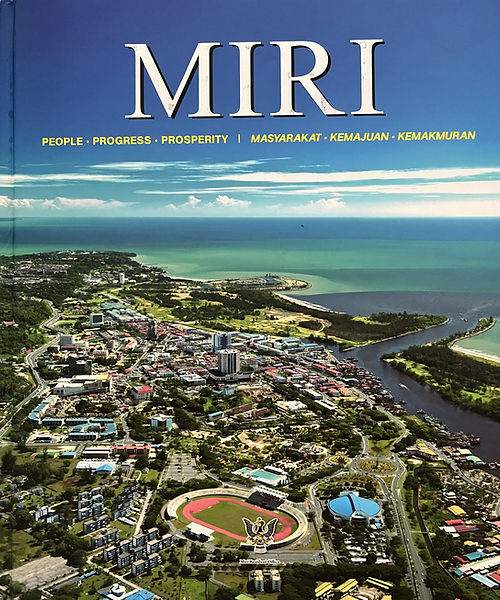
Source: Leong Choon Min
In Miri, Chang (2021) notes that by 1895, there were already a few wooden shops operated by Chinese traders, along with a lone Arab trader. These traders engaged in commerce with the Malays, or Mirieks, as early as the 1850s.
At that time, the population of the area was about 100 people. The discovery of oil in 1914 led to an influx of workers from Kuching, Sibu, Malaya, and Singapore.
The Hinghua people began to settle in the area, bringing skills such as mechanics and taxi, and bus driving. Some of the more enterprising individuals opened shops that sold various types of vehicles, ranging from bicycles to motorcycles, and eventually to cars, buses, and lorries. Others took on roles such as barbers and engaged in other trades. Community records indicate that 22 Hinghua families arrived in Miri.
According to Chang (2021), the current population of the Hinghua community in Miri is about 2,000. Some members have also migrated across the border to Kuala Belait in Brunei.
Additionally, the Miri Hin Ann Association's Youth Section is a growing and active group within the community.
Miri Hin Ann Association
Mr. Li Ming Seng (李明森会长)
President of Miri Hin Ann Association
(美里兴安会馆)
2519, Jalan Boulevard 2a/1, MIRI, Sarawak.
A Glimpse of Miri, Sarawak
Note: These are third-party videos.
Please view them at your discretion.

